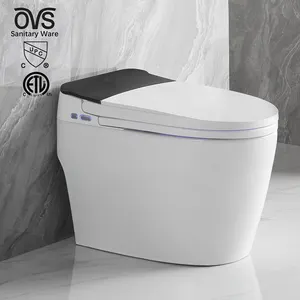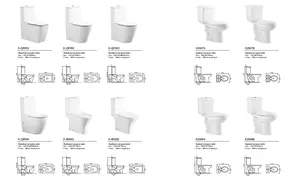
OVS Auto Sensor Flush Electric Bathroom Japanese 1 Piece Intelligent Wc Commode Toilet Bowl Smart Toilet With Remote Control


15YRS OEM/ODM Experience Factory Modern Bathroom And Siphon Flushing Ceramic S Trap Wc Set Bowl 2 Piece Toilet





















RV composting toilets present an innovative solution for travelers seeking sustainable and convenient waste management systems. These toilets are designed to decompose human waste through a natural process that transforms it into compost, suitable for non-edible plants. This eco-friendly alternative to traditional plumbing is particularly beneficial for mobile lifestyles in recreational vehicles.
The market offers various models of composting toilets for RVs, each with unique features to cater to different needs. Some are equipped with separate compartments for liquid and solid waste, enhancing the composting efficiency, while others may include features such as built-in fans to expedite the drying process and minimize odors.
Installing an RV composting toilet is straightforward, with most units requiring minimal setup. Maintenance involves regular emptying of the composting chamber and, depending on the model, the occasional addition of a carbon-rich material to aid in the composting process. The simplicity of this system makes it a favorite among RV enthusiasts.
Portable composting toilets significantly reduce water usage, a critical consideration for RV users who often have limited water supplies. By opting for a composting system, one also contributes to reducing the environmental impact of chemical disposal associated with traditional RV toilets.
While composting toilets for RV use are the primary focus, their application extends to other areas such as off-grid homes and remote cabins. Their versatility and environmental benefits make them an excellent choice for any situation where traditional plumbing is impractical or undesirable.
Selecting the right RV composting toilet involves considering factors such as size, capacity, and ease of use. Prospective buyers should assess their travel habits and vehicle space to ensure they choose a model that aligns with their needs.